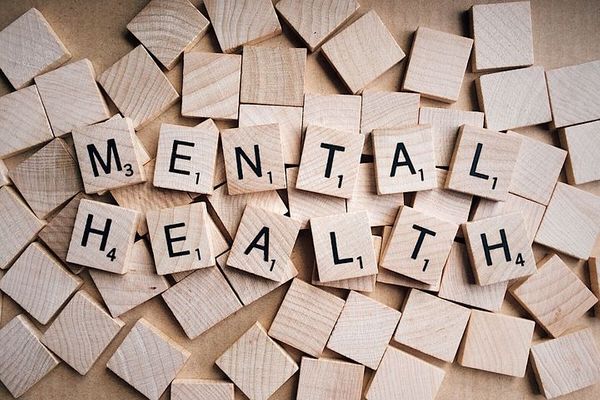5.3.4
Inequalities in Access
Disability and Access to Healthcare
Disability and Access to Healthcare
Inequalities in access to healthcare concern themselves with whether or not people have equal opportunity to make use of the services they require and need or whether some are less effective than others in getting their need met.


Causes of inequality
Causes of inequality
- The ability to choose to access healthcare is dependent on a number of factors, including:
- The ability to recognise and accept that they have a health problem.
- A willingness to accept help from healthcare services.
- The accessibility of the required healthcare service.
- The presence of cultural barriers, including those created by gender socialisation, education, ethnicity, or lack of understanding by healthcare services of the needs of the patient.


Priority
Priority
- Many disabled people receive inadequate access to treatment or specialised equipment.
- Disabled people are seen as low priority with the NHS, in comparison to other patients.


Understanding
Understanding
- Some healthcare professionals do not fully understand the needs of disabled people.
- GPs admit that they find it difficult to diagnose people with learning disabilities.


Travel difficulties
Travel difficulties
- Disabled people often have difficulties travelling to health centres and dentists and are, therefore, often excluded from routine treatment and check-ups.
Age and Access to Healthcare
Age and Access to Healthcare
Inequalities in access to healthcare concern themselves with whether or not people have equal opportunity to make use of the services they require and need or whether some are less effective than others in getting their need met.


Access
Access
- Older people tend not to get the same access to healthcare services as younger people.
- Those older people who are most socially disadvantaged have particular problems accessing healthcare services.


Cultural factors
Cultural factors
- There are cultural reasons for this, in that older people may feel that they are placing a burden on doctors and may not want to ‘bother them’.
- Older people may also play down their symptoms, dismissing them is a part of old age.
- Doctors may also under-diagnose older people, assuming that symptoms are consistent with the ageing process.


Ageism
Ageism
- Ageism may also be a factor, in terms of stereotyping, prejudice and discrimination.
- Elderly care medicine is seen as lower status and priority and may lack the allocation of specialist staff.


Travel
Travel
- Older people often lack transport to access healthcare services.
1Theory & Methods
1.1Sociological Theories
1.2Sociological Methods
2Education with Methods in Context
2.1Role & Function of the Education System
2.2Educational Achievement
2.3Relationships & Processes Within Schools
3Option 1: Culture & Identity
3.1Conceptions of Culture
3.2Identity & Socialisation
3.3Social Identity
3.4Production, Consumption & Globalisation
4Option 1: Families & Households
4.1Families & Households
4.2Changing Patterns
4.3The Symmetrical Family
4.4Children & Childhood
5Option 1: Health
5.1Social Constructions
5.2Social Distribution of Healthcare
5.3Provision & Access to Healthcare
5.4Mental Health
6Option 1: Work, Poverty & Welfare
6.1Poverty & Wealth
7Option 2: Beliefs in Society
7.1Ideology, Science & Religion
7.2Religious Movements
7.3Society & Religion
8Option 2: Global Development
8.1Development, Underdevelopment & Global Inequality
8.2Globalisation & Global Organisations
8.3Aid, Trade, Industrialisation, Urbanisation
9Option 2: The Media
9.1Contemporary Media
9.2Media Representations
10Crime & Deviance
10.1Crime & Society
10.2Social Distribution of Crime
Jump to other topics
1Theory & Methods
1.1Sociological Theories
1.2Sociological Methods
2Education with Methods in Context
2.1Role & Function of the Education System
2.2Educational Achievement
2.3Relationships & Processes Within Schools
3Option 1: Culture & Identity
3.1Conceptions of Culture
3.2Identity & Socialisation
3.3Social Identity
3.4Production, Consumption & Globalisation
4Option 1: Families & Households
4.1Families & Households
4.2Changing Patterns
4.3The Symmetrical Family
4.4Children & Childhood
5Option 1: Health
5.1Social Constructions
5.2Social Distribution of Healthcare
5.3Provision & Access to Healthcare
5.4Mental Health
6Option 1: Work, Poverty & Welfare
6.1Poverty & Wealth
7Option 2: Beliefs in Society
7.1Ideology, Science & Religion
7.2Religious Movements
7.3Society & Religion
8Option 2: Global Development
8.1Development, Underdevelopment & Global Inequality
8.2Globalisation & Global Organisations
8.3Aid, Trade, Industrialisation, Urbanisation
9Option 2: The Media
9.1Contemporary Media
9.2Media Representations
10Crime & Deviance
10.1Crime & Society
10.2Social Distribution of Crime
Unlock your full potential with Seneca Premium
Unlimited access to 10,000+ open-ended exam questions
Mini-mock exams based on your study history
Unlock 800+ premium courses & e-books